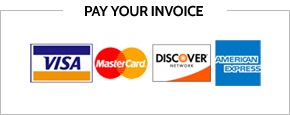Video Surveillance in the Workplace: When Is It Illegal to Film/Monitor Employees in CA?

Many employers choose to install video cameras in the workplace. Video surveillance protects the company in the event something goes wrong, such as if there’s a break-in or if someone steals company property, for example. Surveillance also protects employees against criminal acts.
But when does surveillance in the workplace go too far? Can employers monitor employees in all places at all times? Continue reading to learn about the boundaries of video surveillance in California workplaces. Call a knowledgeable California employment law attorney with any questions or for help with an employment-related matter.
The General Rule: Public Video Surveillance is Fine
As a general rule, California law allows employers to install video surveillance equipment and generally monitor employees in public spaces, so long as employees are aware of the monitoring. That includes elevators, hallways, conference rooms, foyers, and cafeterias; these and other public spaces can generally be monitored without issue.
Employers must be able to show that they have a legitimate business interest in recording video, which outweighs the worker’s privacy interest. Under most circumstances, this means that employers can record public places in the workplace, so long as employees are made aware of the video recording. An employee can dispute the right to be recorded if they can show they have a reasonable expectation of privacy in a given location.
Prohibited Employee Monitoring
California law prohibits video recording in certain areas in which employees have a reasonable expectation of privacy. These areas include:
- Bathrooms
- Dressing rooms
- Fitting rooms
- Showers
- Locker rooms
- Tanning booths
- Bedroom interiors
- Depending upon the expectation of privacy, lunchrooms and break rooms
Additionally, employers may not video record union activities or meetings. Recording union activity is prohibited by the federal National Labor Relations Act.
Audio Recording is Special
The general rule applies to video recording but not to audio recording. Recording audio of employees in California requires two-party consent. Without explicit consent from employees to have their audio recorded, employers cannot legally record their audio. This rule also means employees cannot legally record anyone else’s audio without that party’s explicit consent.
The prohibition on non-consensual audio recording applies to audio taken in conjunction with video recording. If an employer installs security cameras that record both audio and video, employees must explicitly consent to the audio recording.
Employee Phone Calls
Employee business calls can generally be “monitored” but not “recorded” unless there is explicit consent from all parties involved in the conversation. Employers should not monitor personal phone calls unless an employee has been explicitly told that personal calls made from business phones will be monitored (and, preferably, asked to stop making them).
Employers can also generally monitor other workplace communications, including computer usage, voicemail, e-mail, and other communications made on a work-provided phone.
If you are a San Francisco employee or employer in need of advice or representation concerning equal pay violations, retaliation, whistleblower protections, workplace discrimination, or other California labor law issues, contact the Bay Area employment law attorney Richard Koss at 650-722-7046 on the San Francisco Peninsula, or 925-757-1700 in the East Bay.


